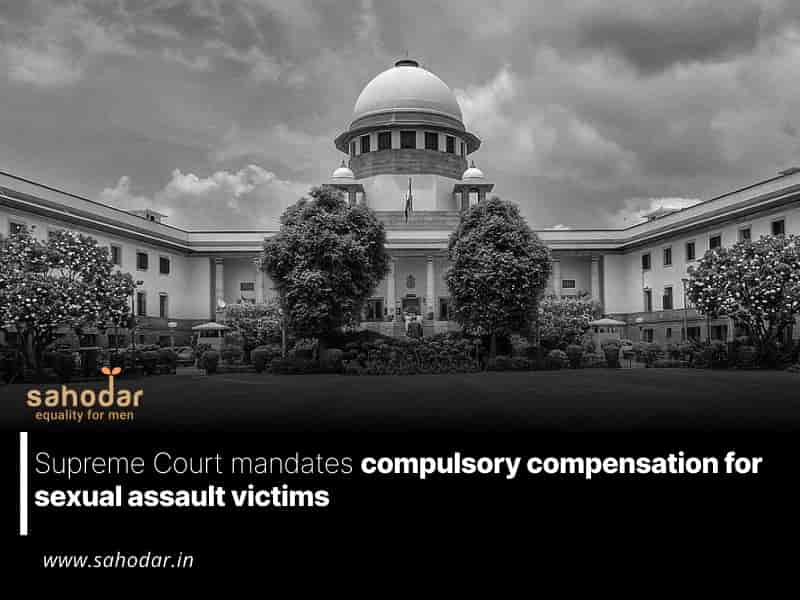The Court was hearing a bail plea filed by a man convicted for rape and sexual assault under various provisions of the Indian Penal Code and the Protection of Children from Sexual Offences Act.
On Monday, the Supreme Court instructed all trial courts to mandate victim compensation for women and minor children in cases of sexual assault and other offenses causing bodily harm, while delivering a judgment in Saibaj Noormohammad Shaikh v. State of Maharashtra & Anr..
A Bench comprising Justices BV Nagarathna and Pankaj Mithal issued this directive while considering a bail plea filed by a man convicted of rape and assault under various provisions of the Indian Penal Code (IPC) and the Protection of Children from Sexual Offences Act (POCSO Act).
“In the circumstances, we direct that a Sessions Court, which adjudicates a case concerning the bodily injuries such as sexual assault etc. particularly on minor children and women shall order for victim compensation to be paid having regard to the facts and circumstances of the case and based on the evidence on record, while passing the judgment either convicting or acquitting the accused”, the Court said in its November 4 order.
Additionally, the Court instructed the District and State Legal Services Authorities to promptly enforce its directive, ensuring that victims in such cases receive compensation as quickly as possible.
The appellant, Saibaj Noormohammad Shaikh, was convicted under Sections 376D (rape) and 354 (assault or criminal force to a woman with intent to outrage her modesty) of the Indian Penal Code (IPC). He was sentenced to 20 years in prison and fined ₹10,000.
For his conviction under the POCSO Act, Saibaj received a 10-year rigorous imprisonment sentence and a ₹2,500 fine, with an additional month of imprisonment in case of default.
The Court noted that the trial court, while convicting Saibaj, had failed to issue any direction for the payment of compensation to the minor victim in the case.
“Such a lapse on the part of Sessions Court would only delay payment of any compensation under Section 357A of the CrPC,” the top court said.
Therefore, the Court directed all trial courts to mandate compensation for victims in such cases when delivering judgments, whether convicting or acquitting the accused.
It also recommended:
There can also be a direction for payment of interim compensation which could be made by the Sessions Court depending upon the facts of each case.”
The Court also instructed its registry to send the order to the Registrar Generals of all High Courts and asked them to further forward it to all District and Sessions Court judges, who are required to order victim compensation in suitable cases.
Regarding Saibaj’s bail plea, the Court, after noting that he had served over half of his sentence and that a co-accused in the case had been granted bail by the High Court, concluded that Saibaj was eligible for bail.
“We, therefore, direct that the appellant be produced before the concerned Sessions Court as early as possible and the Sessions Court shall release him on bail, subject to such conditions as it may deem appropriate to impose,” it noted in its order.

